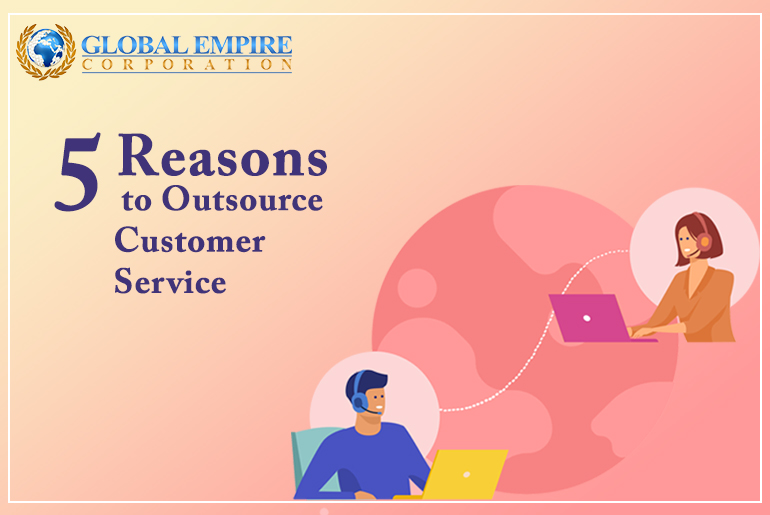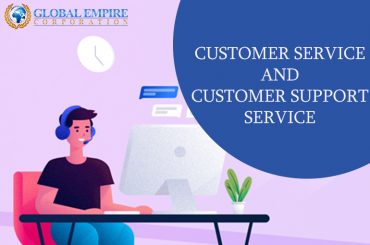Any business’s long-term success is contingent on factors other than its consumer base. True, you need customers to earn income and demonstrate that your product is in demand. The business, however, does not end there.
Customer nurturing is the second phase in the sales process. Establishing a connection based on trust and transparency may significantly impact your retention rates and the overall health of your business. Outsourcing customer support involves a variety of duties, including updating consumers on their purchases, assisting with installation or difficulties, providing training, and responding to inquiries and complaints.
There are several compelling reasons to choose outsourced customer assistance over in-house help. This post will outline seven critical elements to consider when selecting a customer support solution that works for your business. Let us begin!
What Is Customer Support?
When an issue arises with a business’s sold product, customer service is the support supplied by the firm. ‘Problem’ does not necessarily indicate that the product is defective, but rather that the consumer has concerns about how it is set up, how it functions, or how well it performs.
The constant communication with outsourcing customer services ensures the product is adequate and the client is satisfied. After a transaction has been made, a firm has a connection with its customers.
There are many benefits of outsourcing customer service. It is a critical component of the whole customer experience, as is ensuring that your consumers feel taken care of after they acquire your product or solution. Executives have several difficult options when determining how to manage their firm, perhaps one of the most essential is whether to outsource or maintain customer assistance in-house.
#1. Leverage quality services
Not only can businesses save money and time by outsourcing customer care, but they also get higher-quality service. You can outsource customer care service and use expert teams that have been educated to adapt to various company environments and sectors.
They specialize in offering exceptional customer service across multiple channels, including live chats, direct calls, telemarketing, and contact centers.
Clients may anticipate outsourcing customer services to leverage the following:
- Thoroughly researching the client’s company
- Considering the client’s wants, requests, and expectations
- Training a team and ensuring that each agent is fully prepared to help the client’s customers
- Launching the service
- Assisting customers with their issues and demands
- Initiating the service and responding to consumer inquiries
In other words, outsourcing customer support will require investing significant time and effort into providing superior customer service to their clients, which most businesses struggle to do independently. Outsourcing, as a result, provides improved customer service.
#2. Increase Revenue
Businesses failing to prioritize customer experience fall behind the competition. According to a Qualtrics survey, companies that excel in customer experience outperform their rivals by over 80%. Additionally, 84% of businesses that enhance their customer experience see an increase in revenue as one of the major benefits of outsourcing customer support.
Customers nowadays are just as interested in how businesses treat them as in the pricing and quality of products or services. Additionally, they are eager to pay for a positive experience. Selecting a vendor that provides a high level of consumer care will assist your organization in increasing customer satisfaction, which results in higher income.
#3. Highly Specialized Workforce
Training is critical to the success of any customer support approach. Agents must possess technical competence to traverse business software and provide good customer service. Simultaneously, they must adhere to customer service best practices to deliver an extraordinary experience that will earn the client’s loyalty to the firm.
Employers must make a significant investment in training staff of specialist agents. If you choose to pursue this path internally, you may encounter considerable growth pains, not to mention substantial diversions from your company’s main objective. By contrast, working with a third-party vendor through customer support outsourcing services enable you to get the advantages of a highly skilled staff without incurring the associated expenditures. That is a significant victory for your company!
#4. You get access to expertise across multiple channels.
Starting with specialized channels like a voice is the standard strategy when attempting to implement customer experience internally. You’ll also have a lot of work to do internally if you want to risk anything like live chat or two-way messaging in the future.
It’s possible to understand precisely what it takes to put it up if you work with an external customer experience business that has previously implemented it for other clients and has already created procedures and processes for them. You may reply more quickly to your consumers if you use numerous channels for delivery rather than just one main channel.
#5. Cost Optimization
Customer service is the lifeblood of every commercial enterprise, particularly those involved in e-commerce. Nothing can wreak havoc on an internet business’s reputation more than client unhappiness. Whatever the quality of your goods, if your customer service is inadequate, your firm will fail.
However, most internet businesses lack the resources necessary to recruit an in-house customer service team. It’s a lengthy process that involves hiring, onboarding, and training, as well as office leasing and equipment costs. That is why a business process outsourcing service provider can work wonders.
According to some estimates, an in-house customer service agent may cost as much as $60.000 per year. An outsourced support agent costs about $9000 per year, in contrast. That’s seven times less expensive than hiring employees from inside your company.
As a result,
outsourcing customer services currently makes customer support services accessible to nearly any organization. What’s the harm in taking advantage of something like this?
Wrapping Up
Whether a company decides to develop an in-house customer support staff or outsourced customer care to a third-party vendor, the ultimate objective is the same: providing the greatest possible customer experience.
Businesses in every business compete for the loyalty of their consumers, and with so many alternatives available, customer expectations are greater than ever. Collaboration with the proper outsourcing customer support may provide your firm a competitive edge, which benefits both your business and your customers.
Despite advances in technology, well-trained individuals with the passion, conviction, and ability to foresee and address any problem remain indispensable. Consider what more you can do to create a strong emotional connection with every consumer and persuade them to recommend your products and services to others.
Also Read: How Customer Service Can Turn Into A Successful Marketing Tool?





